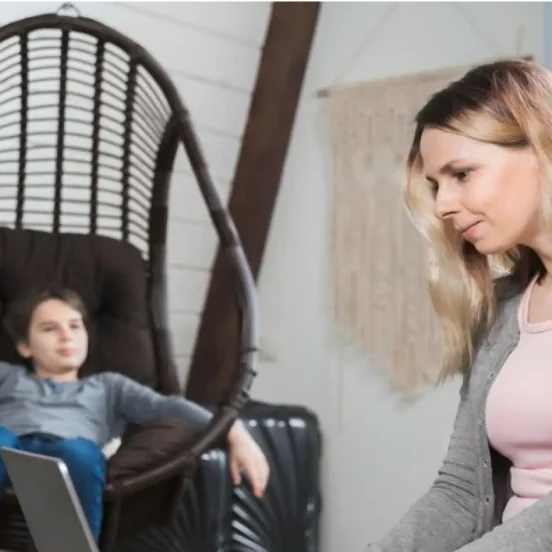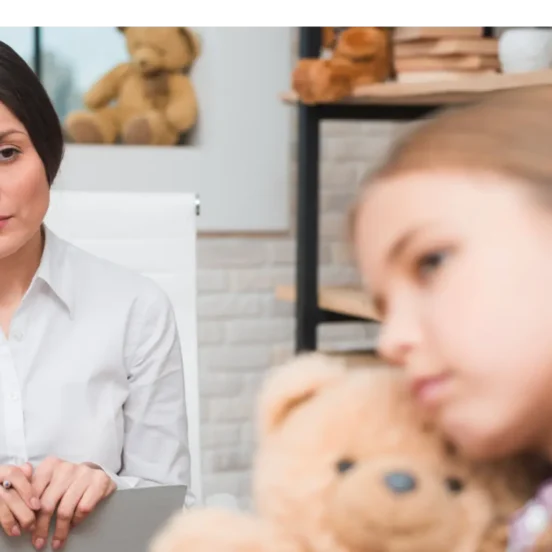How Do You Deal with Feeling Unwanted and Unloved?
Feeling unwanted and unloved is a profound emotional experience that affects people of all ages, from teenagers to adults. According to recent studies, approximately 30% of teenagers and around 20% of adults report feeling this way at some point in their lives. These feelings can stem from various sources, such as family dynamics, social interactions, or personal struggles.
Understanding that you are not alone in this experience is the first step towards addressing and overcoming these emotions. In this blog, we’ll explore practical strategies and insights to help you cope with and navigate through these challenging feelings.
What Does Feeling Unwanted Mean?
Feeling unwanted often means experiencing a sense of rejection, exclusion, or insignificance. It can arise when someone feels that their presence, opinions, or contributions are neither valued nor needed by others.
This emotion can be triggered by various situations, such as being overlooked in social settings, facing repeated rejections in personal relationships, or feeling neglected by family or friends. When these feelings persist, they can lead to deeper emotional challenges, such as low self-esteem, loneliness, and even depression.
Recognizing what it means to feel unwanted is crucial in understanding the underlying causes and finding effective ways to address and manage these emotions.
What Disorder Makes You Feel Unloved?
Certain mental health disorders can significantly contribute to feeling unloved. One such disorder is Borderline Personality Disorder (BPD), which is characterized by intense fear of abandonment, unstable relationships, and a distorted self-image.
Individuals with BPD often struggle with feelings of emptiness and worthlessness, making them more susceptible to perceiving themselves as unloved. Additionally, depression and anxiety disorders can amplify these feelings by fostering negative thought patterns and emotional instability.
People with these conditions may find it challenging to form secure attachments, further exacerbating the sense of being unloved.
Reasons Why You Might Feel Unwanted
Feeling unwanted can stem from a variety of sources, both external and internal. Recognizing these reasons can help address the root causes and find ways to cope. Here are some common reasons why you might feel unwanted:
- Rejection in relationships: Experiences of being ignored, dismissed, or rejected by friends, family, or romantic partners.
- Social exclusion: Being left out of social activities or feeling isolated in group settings.
- Negative self-perception: Low self-esteem and self-worth, leading to the belief that you are not valued by others.
- Past trauma: Emotional scars from past abuse, neglect, or significant loss can contribute to ongoing feelings of being unwanted.
- Mental health issues: Conditions such as depression, anxiety, or personality disorders can intensify feelings of unworthiness and loneliness.
- Communication breakdowns: Misunderstandings or lack of effective communication in relationships can lead to feelings of being unappreciated or unloved.
Causes and Triggers of Feeling Unwanted
Feeling unwanted is often a complex emotional response with various underlying causes and triggers. These can range from personal experiences to broader societal influences. Understanding these factors can help you identify and address the root of these emotions.
Childhood experiences: Early experiences of neglect, lack of affection, or inconsistent caregiving can create a deep-seated belief of being unwanted.
Relationship dynamics: Toxic relationships, where criticism and emotional distance are prevalent, can lead to persistent feelings of rejection and unimportance.
Life transitions: Significant changes such as moving to a new city, changing jobs, or ending a relationship can trigger feelings of being lost and unvalued.
Social comparison: Constantly comparing oneself to others, especially in the age of social media, can foster feelings of inadequacy and exclusion.
Workplace environment: Lack of recognition, support, or inclusion in the workplace can contribute to feeling unwanted and undervalued.
Physical health issues: Chronic illness or disability can lead to social isolation and the perception of being a burden, contributing to these feelings.
Cultural and societal factors: Societal pressures and cultural expectations can sometimes make individuals feel that they do not fit in or are not valued for who they are.
What to do When You Feel Unwanted by Everyone?
When you feel unwanted by everyone, it can be overwhelming and deeply distressing. The sensation of “I feel unloved and unwanted by anyone” is a common experience that many people face at some point in their lives. It’s crucial to address these feelings head-on rather than allowing them to fester.
Here are 10 ways to deal with feeling unwanted and unloved, providing practical steps to help you navigate and improve your emotional well-being.
1. Connect with Your Feelings
Take time to sit with your emotions and truly understand what you’re feeling. Journaling can be a helpful tool to explore these feelings in-depth and identify specific triggers. Acknowledging your emotions is the first step toward healing.
2. Understand Attachment Styles
Learn about different attachment styles and how they impact your relationships. Recognizing your attachment style can help you understand patterns in your relationships and work towards healthier interactions.
3. Unpack Your Beliefs
Examine the beliefs you hold about yourself and your worth. Often, feelings of being unwanted stem from negative self-beliefs. Challenging and reframing these beliefs can be a powerful step towards feeling more valued.
4. Talk to Your Partner
If you are in a relationship, communicate openly with your partner about your feelings. Sharing your emotions and discussing any issues can help both of you understand each other better and strengthen your connection.
5. Show Appreciation
Expressing gratitude and appreciation for those around you can foster positive relationships and improve how you feel about yourself and others. Acknowledging the good in your life can shift your focus from negative thoughts.
6. State Your Needs
Clearly communicate your needs in your relationships. Letting others know what you require can help them support you better and can prevent feelings of neglect or being overlooked.
7. Note Toxic Behavior
Identify and distance yourself from toxic behaviors and relationships that contribute to your feelings of being unwanted. Surrounding yourself with supportive and positive individuals can significantly impact your emotional health.
8. Learn to Love Yourself
Practice self-love and self-care. Engaging in activities that make you happy and taking care of your physical and mental health can boost your self-esteem and help you feel more valued.
9. Review Your Values
Reflect on your core values and whether your current life aligns with them. Living a life true to your values can provide a sense of purpose and self-worth, making you feel more fulfilled and less dependent on others’ approval.
10. Be Desirable
Work on becoming the best version of yourself. This doesn’t mean changing who you are but rather focusing on personal growth and self-improvement. When you feel good about yourself, others are more likely to see your value and appreciate you.
How to Deal With Feeling Unwanted in a Relationship?
Dealing with feelings of being unwanted in a relationship can be particularly challenging, as it strikes at the core of intimacy and connection. To address these feelings effectively, it’s crucial to communicate openly with your partner about your emotions. Expressing how you feel in a calm and honest manner can open the door to understanding and resolution.
Additionally, it’s important to assess the relationship dynamics and identify any patterns or behaviors that might be contributing to these feelings. Seeking support from a therapist or counselor can also provide valuable insights and strategies for improving your relationship.
Building a stronger, more supportive connection with your partner involves mutual effort, understanding, and a commitment to nurturing each other’s emotional needs.
What If You Can’t Make People Want You?
If you find yourself struggling with the realization that you can’t make people want you, it’s essential to shift your focus from external validation to internal acceptance. Asking, “How do I let go of feeling unloved?” is the first step in this transformative journey.
Start by acknowledging that self-worth comes from within and not from the approval of others. Practice self-compassion and engage in activities that make you feel valued and fulfilled.
Letting go of the need to be wanted by others allows you to form healthier relationships based on mutual respect and genuine connection.
Closing Note
If you find yourself asking, “Why do I feel unwanted?” it’s crucial to explore the underlying causes and triggers of these emotions. By connecting with your feelings, understanding your attachment styles, and practicing self-love, you can begin to address and heal from these sentiments.
Remember, it’s essential to communicate openly in your relationships and seek support when needed. Ultimately, shifting your focus to self-acceptance and internal validation can lead to a more fulfilling and emotionally balanced life.















